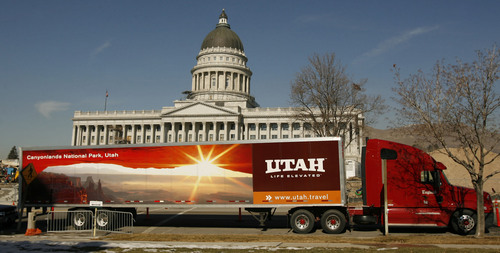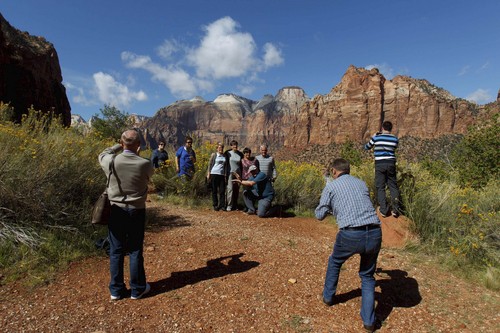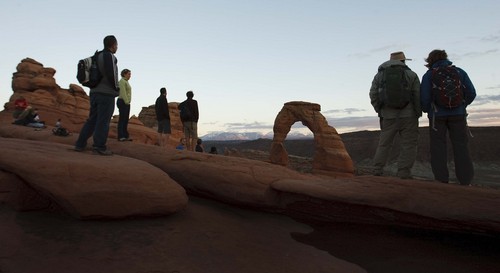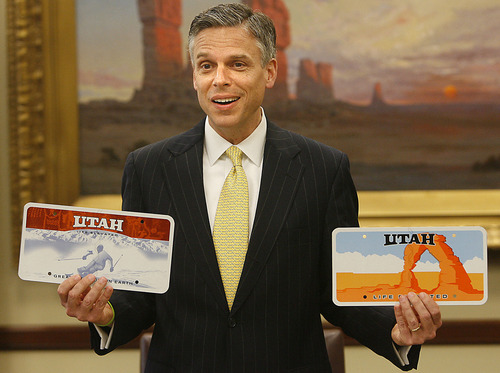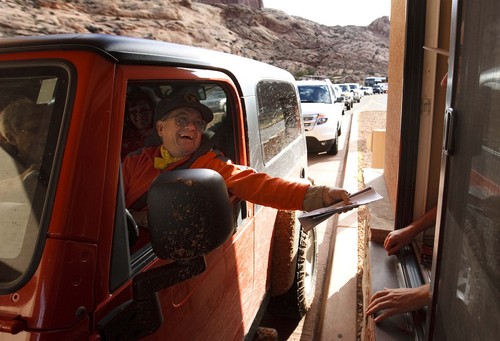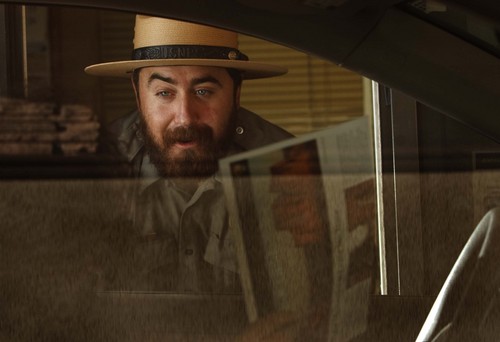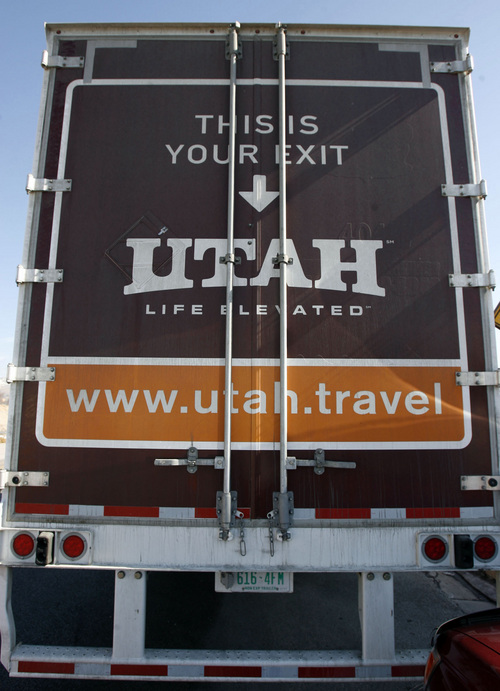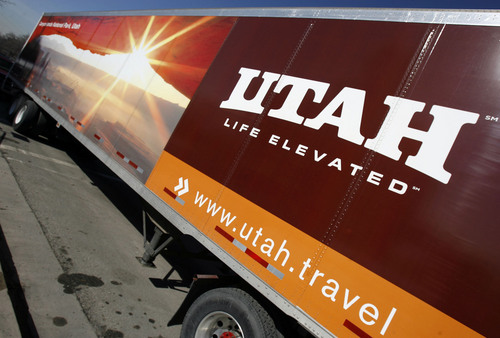This is an archived article that was published on sltrib.com in 2014, and information in the article may be outdated. It is provided only for personal research purposes and may not be reprinted.
The old adage that "sometimes you have to spend money to make money" is apparently true when it comes to promoting tourism.
The Utah Office of Tourism spent about $12 million to market the state in 2012. The result was that a record $7.4 billion was spent, with 72 percent of that money coming from out of state.
"Tourism is one of the only places you invest money to make money," said Utah Office of Tourism Director Vicki Varela.
According to the Bureau of Economic Business Research at the University of Utah, that translated into 129,088 total jobs, approximately one in 10 of every job in the state. Tourism generated $970.6 million in state and local 2012 tax revenues.
Because the Office of Tourism met its mandated goals, Utah Gov. Gary Herbert is recommending that it receive an additional $3 million for its total budget with the Legislature being asked for an additional $1.7 million for sports and film marketing and global branding.
"Tourism must demonstrate that it is a growing industry as measured by tax revenues to the state," said Varela.
Spencer Eccles, executive director of the Governor's Office of Economic Development (GOED), which includes the tourism office, said the idea is to leverage that new money as much as possible by working with private tourism groups such as Ski Utah as well as city and county governments to promote the state.
In addition to requesting more money to promoting tourism, GOED is requesting another $1 million to market the state to new businesses and recruit corporations to move into the state.
It is proposing to spend $4.9 million on small business development and rural outreach, $4.5 million on the Science, Technology, Engineering and Math Action Center and $2 million on post-secondary education and workforce alignment to make certain that companies moving into Utah have enough qualified workers to fill jobs.
"The bottom line is that when you have an educated population, it attracts business," said Kristen Cox, director of the Utah Department of Workforce Services, adding that "investments in education have long-term impacts."
Part of the promotional money will be used to take Utah's "Live Elevated" tourist slogan and apply it to business marketing efforts.
Varela said Utah has concentrated its tourism marketing efforts on New York City, Los Angeles, Denver and San Francisco, spending money to bring people to the state. In addition, money is being spent to bring foreign visitors into the state from Canada, the United Kingdom, France, Germany and, increasingly, from China. The state is trying some marketing in Boston, which would get increased interest if the Legislature appropriates more marketing money.
According to the University of Utah tourism at a glance research, Utah's top markets for tourism are surrounding states such as California, Idaho, Washington, Colorado, Nevada and Arizona. Visitors from Canada, France, Australia, Germany, the United Kingdom and China make up the bulk of foreign visitation.
Eccles said GOED is working to promote every facet of Utah life. The quality of living in the state next to beautiful scenery and outdoor activities can turn into a major advantage to draw new businesses to Utah.
Twitter: @tribtomwharton



